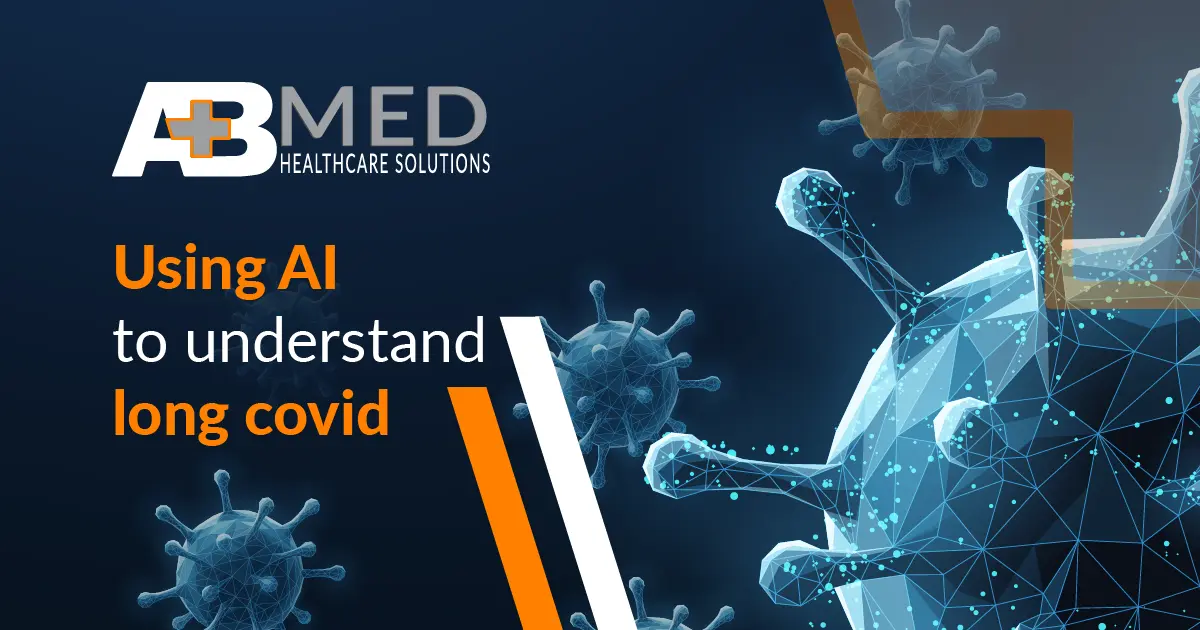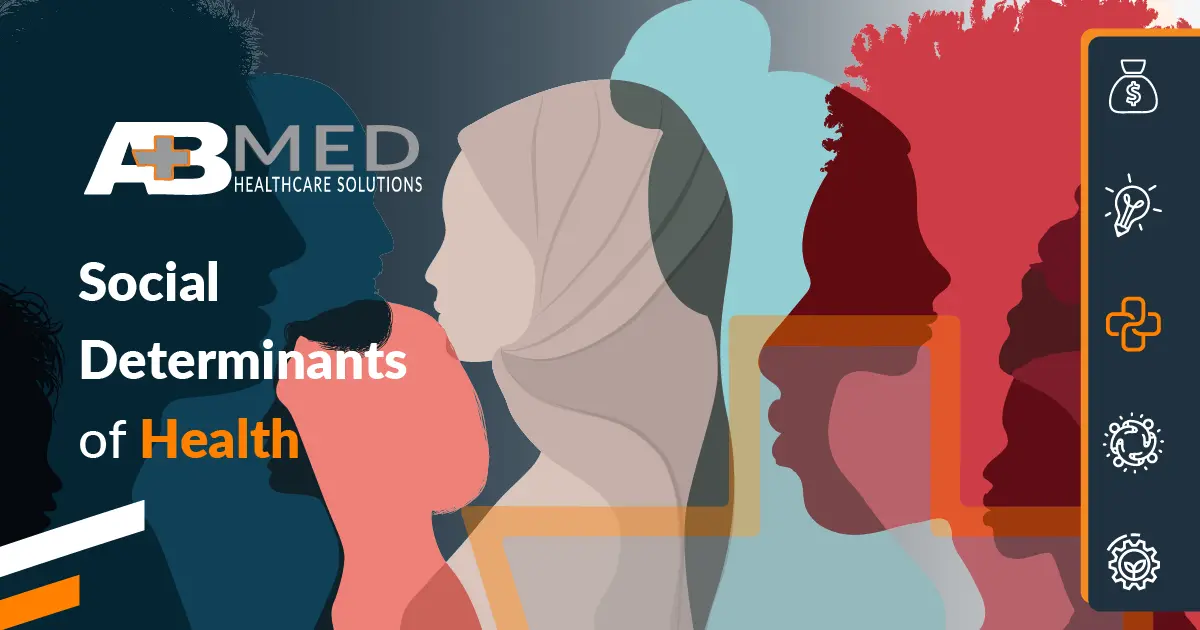How are researchers utilizing the latest technologies, like machine learning and AI, for Long Covid-19?
Hundreds of millions of people across the globe have had COVID-19. (I) Though many have fully recovered, some patients continue to suffer from the effects of post-acute sequelae of SARS Cov-2 (PASC), more commonly referred to as long COVID.
While many unanswered questions remain regarding the cause of long COVID, researchers are beginning to find success in using artificial intelligence to better understand and identify patients experiencing its effects. Continue reading to learn more about the puzzling nature of this post-COVID condition. Explore how it can affect patients and how researchers are using machine learning and AI for Long COVID-19 to uncover more about it.
What is Long COVID
According to the CDC, “Post-COVID conditions are a wide range of new, returning, or ongoing health problems that people experience after first being infected with the virus that causes COVID-19.” (ii) While some may experience the effects of long COVID for weeks, others may experience them for years. (ii)
The symptoms of long COVID are equally puzzling: patients have reported a wide range of issues, from shortness of breath and fatigue to brain fog and anxiety. (iii) These complications can have debilitating effects on the people experiencing them.
While the CDC reports that post-COVID conditions are displayed more often in patients who had a severe COVID-19 infection, they also note that “anyone who has been infected with the virus that causes COVID-19 can experience post-COVID conditions, even people who had mild illness or no symptoms from COVID-19.” (ii) It is possible, then, that there are patients struggling with symptoms from long COVID who are unaware of the connection to an earlier infection.
Why Long COVID is Difficult to Identify
One of the most significant factors making long COVID challenging to study and understand is its ability to manifest itself in patients in different ways. There is also currently no test available that can positively identify or diagnose long COVID. (ii)
The National Institutes of Health created the RECOVER Initiative for this very reason. Standing for Researching-COVID-to-Enhance-Recovery, the initiative aims to learn more about the long-term effects of COVID and to determine “how people recover from a COVID infection, and why some people do not fully recover and develop Long COVID.” (I) The program plans to also “answer critical research questions about the long-term effects of COVID through clinical trials, longitudinal observational studies, and more.” (iv)
Lawrence A. Tabak, D.D.S., Ph.D., acting Director of the National Institutes of Health (NIH), explains the perplexity surrounding long COVID this way: “People understandably want answers to help them manage this complex condition referred to as Long COVID syndrome. But because Long COVID is so variable from person to person, it’s extremely difficult to work backwards and determine what these people had in common that might have made them susceptible to Long COVID. The variability also makes it difficult to identify all those who have Long COVID, whether they realize it or not.” (iii).
In the same post, however, Dr. Tabak also discusses a recent breakthrough technique that could change the way long COVID can be analyzed and studied: artificial intelligence.
Using Machine Learning and AI for Long COVID-19
In 2022, a research team supported by the RECOVER initiative was able to identify “characteristics of people with long COVID and those likely to have it” through advanced machine learning. (iv)
Originally published in The Lancet Digital Health, the study used artificial intelligence to analyze electronic health records from the National COVID Cohort Collaborative (N3C) database in hopes of finding relevant patterns. (iv) According to Dr. Tabak, “One reason machine learning is so powerful is that it doesn’t require humans to tell the computer which features it should look for. As such, machine learning can pick up on subtle patterns that people would otherwise miss.” (iii)
While still preliminary in nature, the findings of the experiment were incredibly promising. According to the published research report, “Our models identified, with high accuracy, patients who potentially have long COVID…As more data sources are identified, our models can be retrained and tuned based on the needs of individual studies.” (v)
While this study that utilizes AI for Long Covid-19 is a huge step in the right direction, more research is still needed to fully understand the syndrome and its effects. The RECOVER initiative is currently enrolling volunteers to participate in key studies in hopes of finding answers and more detailed insight regarding this puzzling condition. (I) You can visit the RECOVER website to find a study near you—the goal is that soon we will be able to better prevent, test, and treat long COVID to safeguard the health of those in our communities. Let’s Connect.
REFERENCES & RESOURCES
- RECOVER: RECOVER: Researching COVID to Enhance Recovery. (n.d.). RECOVER: Researching COVID to Enhance Recovery. [online] Available at: Researching COVID to Enhance Recovery. (n.d.). RECOVER: Researching COVID to Enhance Recovery. [online] Available at: https://recovercovid.org.
- CDC (2021). Long COVID or Post-COVID Conditions. [online] Centers for Disease Control and Prevention. Available at: https://www.cdc.gov/coronavirus/2019-ncov/long-term-effects/index.html.
- Ph.D, L.T., D. D. S. (2022). Using AI to Advance Understanding of Long COVID Syndrome. [online] NIH Director’s Blog. Available at: https://directorsblog.nih.gov/2022/06/07/using-artificial-intelligence-to-advance-understanding-of-long-covid-syndrome/ [Accessed 17 Aug. 2022].
- National Institutes of Health (NIH). (2022). Scientists identify characteristics to better define long COVID. [online] Available at: https://www.nih.gov/news-events/news-releases/scientists-identify-characteristics-better-define-long-covid [Accessed 17 Aug. 2022].
- Pfaff, E.R., Girvin, A.T., Bennett, T.D., Bhatia, A., Brooks, I.M., Deer, R.R., Dekermanjian, J.P., Jolley, S.E., Kahn, M.G., Kostka, K., McMurry, J.A., Moffitt, R., Walden, A., Chute, C.G., Haendel, M.A., Bramante, C., Dorr, D., Morris, M., Parker, A.M. and Sidky, H. (2022). Identifying who has long COVID in the USA: a machine learning approach using N3C data. The Lancet Digital Health. doi:10.1016/s2589-7500(22)00048-6.
By: Erik McLaughlin MD, MPH and Aikaterini Papadopoulou, B.Arch






